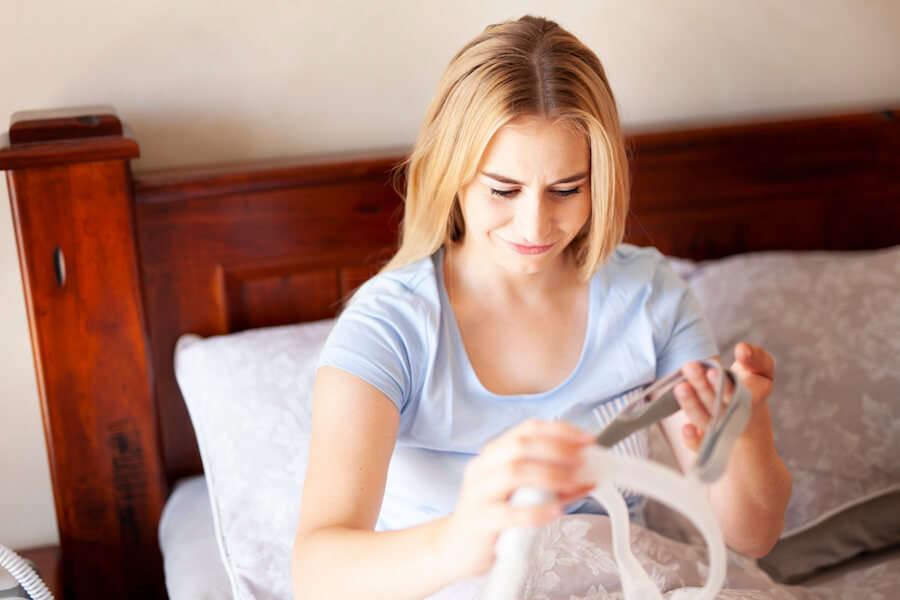
We typically make light of snoring, and it’s easy to joke about buzz-saws and earplugs. But there’s a potentially hazardous disorder known as sleep apnea which often has snoring as a symptom.
The main danger of sleep apnea is obstruction of the airways. Still feeling tired even after a good night’s sleep is common for people with sleep apnea. In more severe cases, sleep apnea can result in high blood pressure and even heart problems.
Symptoms of Sleep Apnea
Snoring is one of the main symptoms of sleep apnea, but not everybody who snores will have sleep apnea (and not every case of sleep apnea will result in snoring). Here are a few additional symptoms to watch for:
- Dry mouth when you wake up.
- Headache when you wake up.
- While you sleep you gasp for air.
- Loud snoring (you might notice this or you might not).
- A pause or stopping of your breathing pattern during sleep (usually, these episodes would need to be reported by another person – it isn’t something you would be aware of).
- Overly sleepy during the daytime hours.
- Difficulty staying asleep.
- Irritability
You might have sleep apnea if you are noticing these symptoms and it’s probably time to schedule an appointment to have it examined.
Two Kinds of Sleep Apnea
Here’s what you should know about the two different kinds of sleep apnea:
Central sleep apnea is caused by an interruption of signals between your brain and body.
Obstructive sleep apnea is more prevalent. When the muscles in your throat relax during sleep, this type of apnea occurs. As the throat muscles relax, the tissues of the throat then obstruct your airway.
It’s also possible to have Complex sleep apnea, which is a blend of the two kinds of sleep apnea.
Sleep Apnea Risk Factors
Anybody can have sleep apnea. The symptoms have even been observed in children. But there are a few risk factors that can make you more likely to develop sleep apnea as time passes. Some of those risk factors include:
Family history: You might be more likely to get sleep apnea if someone in your family has it.
Age: As you age, you might be more likely to get sleep apnea.
Smoking: According to the majority of research, smokers are three times more likely to have an obstructed airway than people who don’t smoke.
Obesity: The risk of sleep apnea is substantially increased when you have fat build up around your neck.
Alcohol use: The muscles in your neck will loosen up when you drink alcohol. If you drink before you go to bed, the muscles in your neck might become too relaxed and block the airway.
This is only a partial list. Sleep apnea can occur for other reasons too. You need to get evaluated for sleep apnea if think you may be at risk.
Is it Possible to Self-Diagnose Sleep Apnea?
The more symptoms and the more risk factors you notice, the more likely you are to develop sleep apnea. But that call can only be made by your physician. In many cases, a sleep study will be necessary to make a correct diagnosis.
Treatment to manage your symptoms can start after a diagnosis is made. A CPAP machine will typically be prescribed. This machine applies a specific amount of air pressure to your airways, ensuring that your throat does not become obstructed.
The amount of rest you experience when you sleep will be considerably increased with CPAP and other therapies. You will feel less stressed and have a lot more energy.